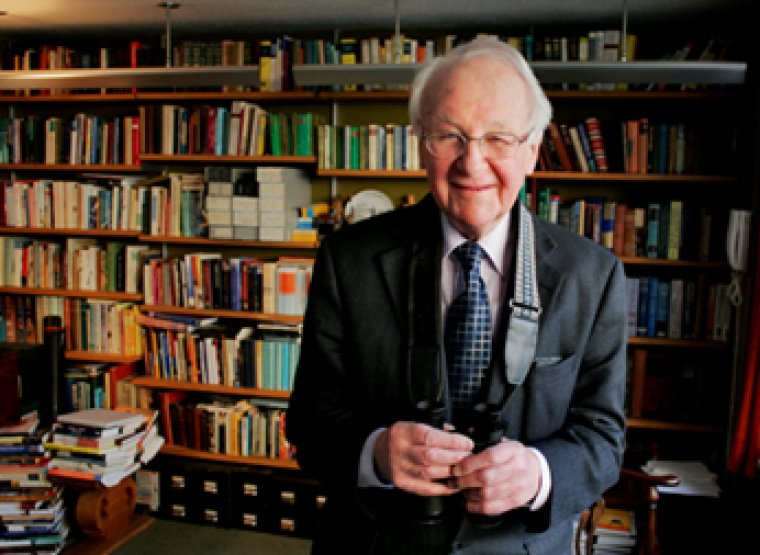

A publisher has hit back at claims that a revised edition of John Stott's classic Basic Christianity changes the book's meaning and is "a bad imitation of the original".
Basic Christianity was first published in 1958. A second edition followed in 1971 and the book has sold millions of copies. Stott, who died in 2011, was an influential Anglican evangelical who inspired several generations of Christians.
A revised edition was undertaken by IVP in the UK and published in 2008. It was published in the US by Eerdmans. Barton Swaim says on the conservative First Things website that Stott's book has been "bowdlerised" for a modern readership. "Two out of every three sentences, I estimate, involve some new wording," he claims.
Blaming Eerdmans rather than IVP, Swaim objects to the revisers dropping references to hymns that were well known in 1971 but are less so today, and to the way in which Stott's language has been updated. He criticises a rewriting of Stott's description of atonement which stresses 'reconciliation', saying: "The newer text leaves the reader free (or freer) to think of the reconciliation Christ has accomplished as the sort of therapeutic fence-mending urged on brawling high-schoolers by their guidance counselors." He says: "The editor and publisher had no right to transform Stott's book as they did, whether or not the author granted his permission."
Swaim's critique was picked up on social media and widely shared.
What Eerdmans did to John Stott's "Basic Christianity" is an insult to both the book's author and its readers https://t.co/VGNclwj5nU
— BetweenTwoWorlds (@between2worlds) April 15, 2016
However, it received a robust rebuttal from Wm B Eerdmans' editor in chief, James Ernest, who pointed out that Stott himself approved the rewrite and hit out at "incomplete research and careless re-tweeting".
Ernest said: "John Stott did not see himself as the author of a classic. He wanted to – and did – author a little book that served a practical, evangelistic purpose. And, stellar preacher and communicator that he was, he understood that what communicates effectively in one time and place must be changed to communicate effectively in another."
He continued: "First Things and Barton Swaim published an essay that appears designed to provoke readers and score culture-war points – all at the expense of Eerdmans's reputation. They did so without bothering to ascertain certain relevant facts, which we would have gladly supplied if they had asked us."
The chief executive of IVP-UK, Sam Richardson, told Christian Today: "The new edition was undertaken with John Stott's approval and I know he was happy with the approach taken.
"I see it as an update rather than a substantial revision. The update re-established the book as one of IVP's best-selling titles and as a result it continues to impact the lives of many people."
First Things issued an apology for Swaim's errors but defended his overall critique of the book.